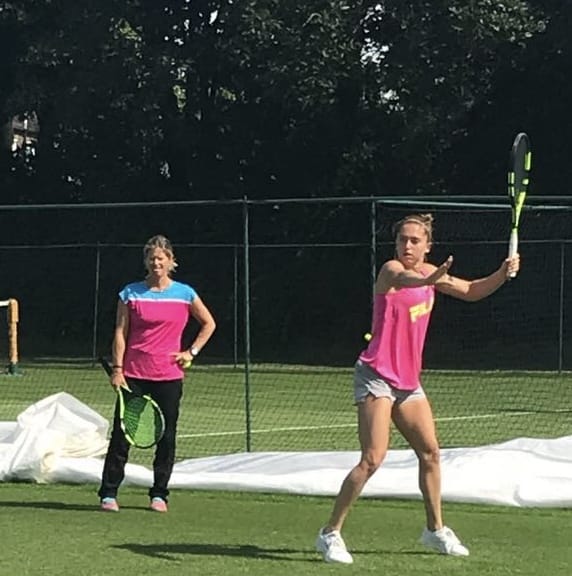I have been working with Francesca Di Lorenzo since she was 10 years old. When I first began working with her, I drafted a mental plan on how we would mold her into the type of player that she needed to be in order to make it to the next level. Everything didn’t always go exactly according to plan, but I adjusted.
I truly believe collegiate tennis was good for Francesca, especially for her maturity. Playing in college establishes a place that you can always call home, while also receiving an education. Unless you are a sensational talent and will be financially set for the rest of your life, getting an education is vital. Even so, I don’t believe financial security will give you happiness at the end of a tennis career. You need an education.
Despite the many benefits of collegiate tennis, there is a tendency for athletes to become spoiled after being taken care of by their universities for four long years. My husband, who is an Olympian and swam his collegiate career at the University of Michigan, had everything done for him while he was a member of the team. After years of plans being made for him, he was useless on the logistical side of things when he began traveling with me following the Olympics at the age of 26.
There is nothing planned for you or handed to you on the pro tour. Let’s face it, you are the boss, and therefore, you better know what you need. This is an area where I have really tried to make Francesca grow independently. Playing on tour is not so much about how you play. It is more about being able to manage everything you have to go through on the travel side, while also being ready to perform at your peak against the best in the world at any given time.
The game of tennis is incredibly mental. More often than not, a player’s mental toughness is the ‘X-factor’ that will allow them to capture a hard-fought set or match. Of course, technical proficiency and simple hard work are important, but having the right mindset can vault a player to unprecedented success. By allowing Francesca to maintain a sense of independence and ownership over her preparation, I believe she has become a stronger player.
Since Francesca turned pro in January, my goal has always been to just keep it simple with the mindset of making her better every time we stepped foot on the court. I have had this exact same approach since she was just 10 years old. Why would I change a method that has been working for 10 years?
Francesca Di Lorenzo has endured her fair share of ups and downs these past six months, but I always tell her that everything happens for a reason. Sometimes, those reasons are the catalysts that you need to get better. Without the struggles that she has pushed through and overcome, she certainly wouldn’t be as strong of a player as she is today.

